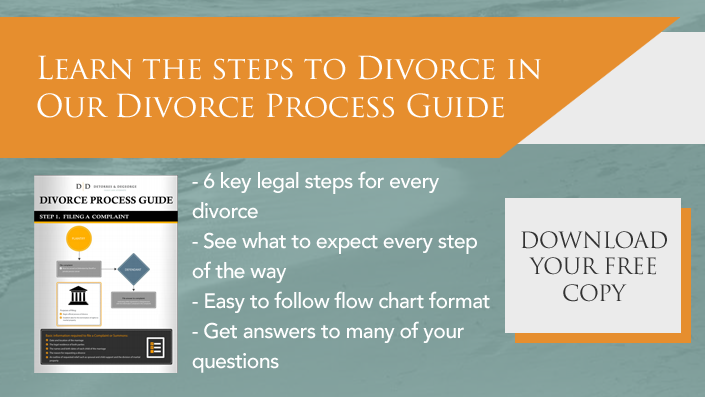 When parties file a Complaint for Divorce they must file under one of the “causes of action”, meaning the basis for the divorce. The most common cause of action in New Jersey is irreconcilable differences which is the state’s no fault option. It simply states that differences have arisen in your marriage for a period of at least 6 months and there is no possibility of reconciliation. If your spouse files an answer and counterclaim, even if that counterclaim is also on the basis of irreconcilable differences, you have a contested divorce. The reason for contesting a divorce is generally to protect both parties’ rights to request various relief that might be available to them, such as spousal and child support. For the most part, divorces are resolved prior to trial and the parties attend what is known as an “uncontested hearing” to officially be divorced. Here are some tips to peacefully get through a contested divorce:
When parties file a Complaint for Divorce they must file under one of the “causes of action”, meaning the basis for the divorce. The most common cause of action in New Jersey is irreconcilable differences which is the state’s no fault option. It simply states that differences have arisen in your marriage for a period of at least 6 months and there is no possibility of reconciliation. If your spouse files an answer and counterclaim, even if that counterclaim is also on the basis of irreconcilable differences, you have a contested divorce. The reason for contesting a divorce is generally to protect both parties’ rights to request various relief that might be available to them, such as spousal and child support. For the most part, divorces are resolved prior to trial and the parties attend what is known as an “uncontested hearing” to officially be divorced. Here are some tips to peacefully get through a contested divorce:
1. Know the Process
When you begin a divorce, you should have a discussion with your attorney about how the process works and what to expect. It is a common misconception that you file a complaint for divorce and the clock starts ticking immediately. This is true in some sense, as the filing of the complaint is the starting point of the divorce and everything that happens thereafter happens per a set time frame. However, many people do not realize how drawn out that time frame may be. Once you serve your spouse with the Complaint, they have 35 days to file an Answer and Counterclaim. Once that occurs, the Court will schedule a Case Management Conference to set deadlines for other events in your case. Specifically, a Case Management Order will set dates for the exchange of discovery requests and answers, and will also establish when real estate appraisals, pension appraisals, and expert reports will be due. Many litigants are surprised when they find out that the discovery process may not end until five or more months after they initially file their Complaint. Following discovery, the Court will order you to attend an Early Settlement Panel which is an event at the Courthouse where each side will present their position to neutral attorneys (or “Panelists”) who are familiar with the judges in that county. Those attorneys will offer an opinion on what they think a fair settlement would be. If you are unable to reach an agreement, you will continue onto mediation and then will be ordered to return to Court for settlement conferences until your matter is resolved or scheduled for trial. It is beneficial to you to understand this process fully as it will aid in managing expectations. Unless you reach a complete resolution of your matter prior to filing the Complaint, it is likely that your case will take at least six months to a year to resolve. Knowing this at the outset may help you in being patient with the process.
2. Utilize all available resources to pursue settlement
The Court, and your attorneys, offer you many options to aid in resolving your matter quickly. It is to your benefit to utilize all of these resources fully in order to reach a resolution. For example, the Court offers parties, with children, a free mediation with court staff in order to attempt to resolve custody and parenting time issues. As this is a free program, it is to your benefit to take this offer seriously and make a true effort towards reaching a resolution. The same is true for the post- Early Settlement Panel mediation. The mediators who participate in this program offer two (2) free hours. Again, given the high cost of divorce, it is always to your benefit to take advantage of any offers for assistance in reaching a resolution.
3. Communicate effectively
If you and your spouse are able to, it may be beneficial for you to continue to communicate throughout the divorce process and see what you are able to resolve on your own. If you discover that you are unable to do so and that your attempts are actually creating a more volatile situation, you may want to tell your spouse that all communications should go through counsel rather than continuing to inflame your home environment. Keep in mind, however, that having all communications go through counsel will further increase your counsel fees. Therefore, it may be helpful to identify what areas you and your spouse can speak about effectively, such as finances, and leave the more emotional aspects, such as your children, to your attorneys.
If you are interested in getting assistance to navigate through the divorce process, please call DeTorres & DeGeorge to schedule a consultation with one of our attorneys.


 START LIVE CHAT
START LIVE CHAT











